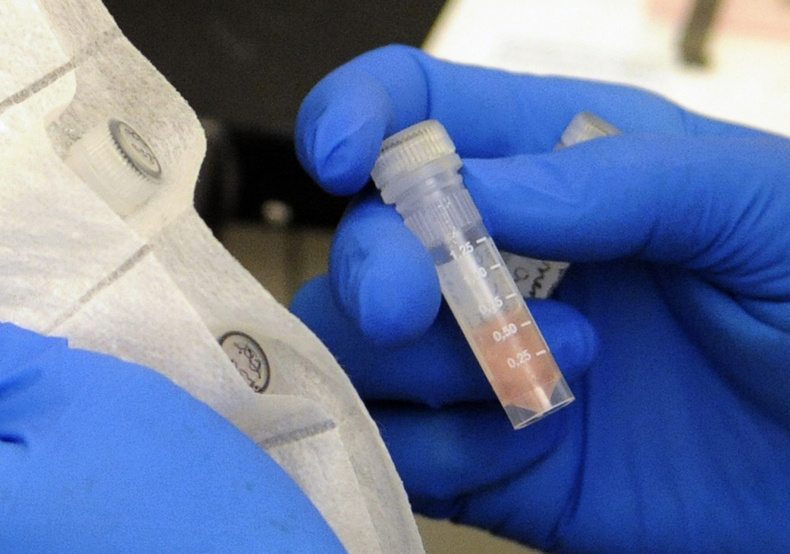Mark McAuliffe, managing partner of Apothecary by Design in Portland, figures most people knew very little about the pharmaceutical practice known as compounding until a few weeks ago.
Massachusetts-based New England Compounding Center put it in the spotlight this month when contaminated drugs produced there were linked to a widespread outbreak of fungal meningitis that has caused two dozen deaths and more than 300 infections so far.
But McAuliffe said Apothecary by Design and most other facilities across the country that employ experienced compounding pharmacists don’t look or operate like New England Compounding Center.
“They were making compounds in bulk without prescriptions attached; we don’t do that,” he said Friday.
Compounding has been done for years. It essentially involves mixing pharmaceutical products to create an individualized medicine to suit a patient’s needs.
State officials said pharmacies that do compounding in Maine operate more like boutiques than factories. Although all licensed pharmacists in Maine are allowed to compound, only about two dozen do it regularly. Each is licensed and overseen by the Maine Board of Pharmacy.
Doug Dunbar, spokesman for the Office of Professional and Financial Regulation, which includes the pharmacy board, said his staff is not aware of any safety complaints or disciplinary action against any compounding facility in Maine. Calls to several members of the Maine Board of Pharmacy were not returned Friday.
The U.S. Food and Drug Administration also has oversight over compounding pharmacies, but they are not as tightly regulated as drug company plants.
Compounding pharmacies are supposed to follow certain rules: Clean floors and other surfaces daily; monitor air in “clean rooms” where drugs are made; require employees to wear gloves and gowns; test samples from each lot.
The FDA leaves enforcement to the states.
New England Compounding Center of Framingham, Mass., operated essentially as a compounding factory for years with little oversight. It produced large quantities of specialized medicine, in some cases with ingredients not fully approved by the FDA, and shipped batches to facilities across the country, including many in Maine.
State and federal investigators are still trying to determine what caused the contamination of its products. The Boston Globe reported that the facility and its equipment were not sanitary and that the company failed to heed warnings.
Joe McVety, a pharmacist with Kennebec Pharmacy & Home Care of Augusta, said his pharmacy, like Apothecary by Design, compounds on a case-by-case basis and is prohibited by state law from dispensing in large quantities or across state lines.
Kennebec Pharmacy dispenses compounds to patients based on prescriptions, and does not “batch,” he said.
McVety likened the sterile compounding lab at Kennebec Pharmacy to an operating room before a procedure, saying it is cleaned every day, and detailed logs are kept.
Compounding pharmacies in Maine nearly always fill special orders placed by doctors. However, because Maine has relatively few compounding pharmacies and the pharmacies do not mass produce, hospitals and health care professionals often look outside Maine for certain specialized medications. Buying in volume keeps costs down, so bigger hospitals often keep certain compounds on hand.
McAuliffe said his pharmacy, unlike New England Compounding Center, typically compounds medications for individual patients.
“We can do some limited production of drugs, for instance when there is a shortage,” he said. “But we don’t do big batches.”
In other instances, Maine pharmacists cannot or will not produce certain types of compounded medications.
McAuliffe said Apothecary by Design, for example, does not make the type of direct-injection compounds that were at fault in the meningitis outbreak.
“That’s more high-risk,” he said. “We just don’t feel comfortable.”
The FDA has asked providers to quarantine all products shipped by New England Compounding Center since May 21 as a precaution, even though only vials of an injectable steroid have been found to be tainted.
In Maine, 31 providers received other products from New England Compounding Center, but not the steroid.
The outbreak is not the first time a steroid made by such a pharmacy has caused fungal meningitis in people receiving spinal steroid injections, The Associated Press reported. Five similar cases, including one fatality in 2002, were traced to one pharmacy in South Carolina that had been shipping its products to five states.
Inspectors found contaminated vials and a lack of quality controls or sterility testing at the pharmacy, according to the AP.
Nationwide, contamination at compounding facilities has occurred regularly. Last year, at least 33 patients suffered fungal eye infections traced to products made by a compounding pharmacy in Ocala, Fla., the AP reported.
At least a dozen more patients were blinded or damaged in an outbreak linked to a facility in Hollywood, Fla. And in Alabama, nine people died after taking a tainted intravenous nutritional supplement made by a compounder in Birmingham.
Recent events aside, McAuliffe said, compounding is “an important and necessary part of servicing the public.
“What happened is a tragedy, obviously, but what I hope comes out of this is a proper federal review of different compounding pharmacies,” he said.
Staff Writer Eric Russell can be contacted at 791-6344 or at:
erussell@mainetoday.com
Twitter: @PPHEricRussell
Send questions/comments to the editors.


